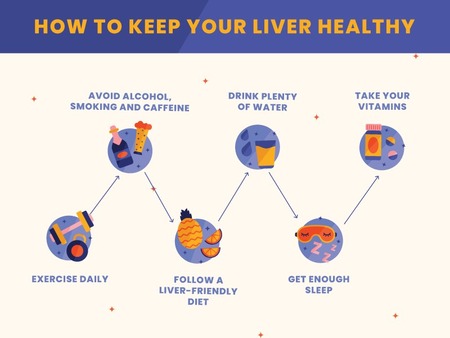
We’ll confirm your booking shortly!
Please provide your number to receive updates.
Enter the 6-digit verification code we just sent you to through SMS. Change Mobile

The liver is an essential organ that performs numerous vital functions in the body, including filtering toxins, producing bile to aid digestion, regulating blood sugar levels, storing nutrients and vitamins, and producing blood-clotting proteins.
Many liver diseases and disorders don't manifest symptoms until the condition worsens. Therefore, maintaining good liver health is crucial to avoiding liver cirrhosis, jaundice, fatty liver, Hepatitis A, B, C, D, and E, and liver failure.
The liver is a vital organ that carries out a number of vital functions. It involves processing nutrition, eliminating toxic chemicals, and creating bile to facilitate digestion. You can more clearly identify certain early indicators when the liver isn't working properly. You can avoid serious health issues by examining these symptoms and getting a quick diagnosis.
These symptoms highlight the importance of maintaining a healthy liver through healthy habits and seeking medical attention if any concerns arise.
Follow these tips to maintain a healthy liver:
If you do not notice any symptoms of liver issues, have a full body checkup every three months, including a liver function blood test. Follow any treatment recommendations made by medical specialists if you have any symptoms.
Discover precision diagnostics with Pathkind Labs, a trusted name in diagnostic services in India. Our NABL accredited labs, equipped with advanced technology, are staffed by a certified team of over 200+ senior pathologists and 2000+ technicians. From tailored health check-ups to specialized tests in Oncology, Neurology, Gynaecology, Nephrology, and more, we've got your health covered. Skip the hassle with online booking for tests or check-ups, available for both lab visits and at-home blood collection. For a seamless experience and early detection, choose Pathkind Labs in Gurugram. Book your appointment today and experience diagnostics made easy.
© 2025 Pathkind Diagnostics Pvt. Ltd. All Rights Reserved | Unsubscribe
